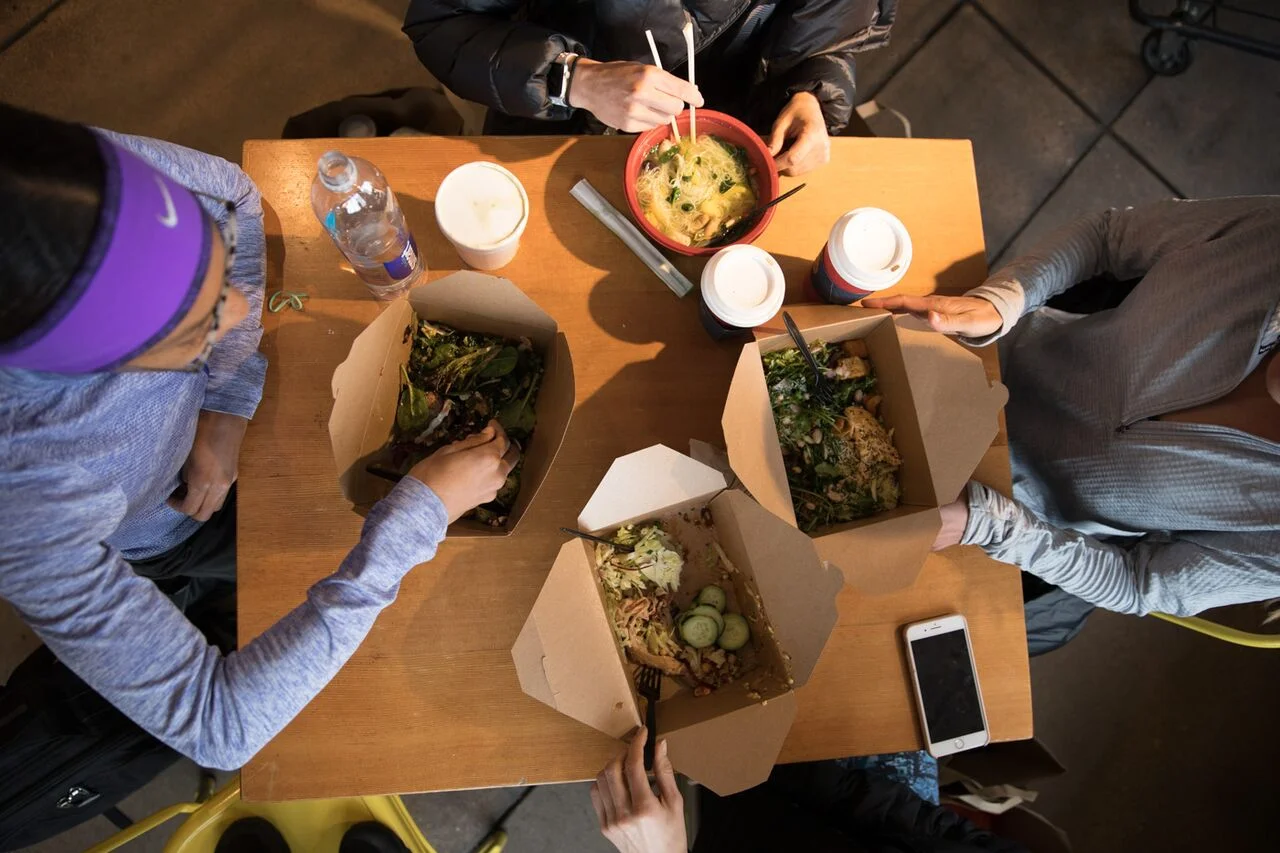Myths about Nutrition... Debunked! By Nutritionist Wilfredo Benitez
I ask nutritionist Will Benitez of On Pace Wellness to tell us about some of the common misconceptions around nutrition that he deals with on a regular basis with his athletes.
Will is a nutritionist living and working in Portland, Oregon. Besides having a Master's in Education and Master's in Nutrition, Will is also a USATF Level 1 Certified Running Coach. This is pretty much the killer combo for us athletes!
Want more nutrition tips from Will? Check out the Ask the Nutritionist newsletter edition for even more advice!
Here are some misconceptions around nutrition that Will comes across a lot in his practice. Check it out!
1. It is best to Carb-load the night before race day
Will: It's best to start emphasizing more carbohydrates in your diet starting about 3 days out from race day, while slightly decreasing fats and proteins day by day. Your muscle tissues and liver each have a storage capacity and eating a heavy amount of carbohydrates the night before a race is not going to increase that storing capacity. Loading up too much on carbs the night before race day gives the body a lot to process, often resulting in poor sleep, sub-optimal digestion, and unwanted GI issues in the morning. Instead, keep the tank full starting a few days prior and keep the dinner before race day mostly carbs, but not necessarily bowls and bowls of pasta.
2. Having a good race or workout means you can celebrate with alcohol without sabotaging the gains you've made in fitness
Will: I'm not going to say that you shouldn't have alcohol, whether to unwind or to celebrate your efforts. Instead, I suggest that you choose to drink water first to ensure you are rehydrating as much as you can; then you can go ahead and enjoy some alcohol. A strategy that I like to encourage is to have at least 10oz of water between drinks.Doing this would make it less likely that the alcohol intake completely sabotages your training efforts and hinders your recovery. Drinking water in this way may also help you reduce the amount of alcohol that would otherwise be consumed.
3. It is necessary to Avoid carbs or restrict calories in order to lean out
Will: Anything in excess will be stored as fat; that's just what the body does. So cutting carbs does not automatically mean weight loss will occur. A better strategy would be to eat more complex than simple carbs, emphasizing fiber-rich carbohydrates in your diet whenever possible. By increasing fiber in the diet, you increase the likelihood that you will be and stay satiated, thus needing to eat less food to get that feeling of being full or satisfied. Also, foods that are more carbohydrate heavy generally have much more antioxidant power than protein or fat dominant foods. Just be sure that the carbs you're eating are as clean as possible as the more processed the food, the less antioxidants and fiber that food will have.
4. Cut back calorie intake severely during injury to avoid weight gain
Will: When an athlete gets injured, it is a common strategy to cut back on calories to avoid weight gain. By doing this, the athlete is actually cutting back on energy, and doing so too much can actually mean that there is less energy provided for the body to heal. Energy demands of the body will indeed decrease if exercise is no longer happening, but be sure to not cut calories too drastically and to emphasize clean foods (low in added sugars, saturated fats, and trans fats) and a bit more key nutrients in the diet to help with the healing process, such as protein, omega-3 fatty acids, and Vitamin C.
Want more of Will's expertise?
Will understands what athletes need to perform better, recovery from injury, peak at the right time, and optimize overall health and wellness.
Don't live in Portland? Not a problem! Will offers remote services for his nutrition coaching, dietary analysis, running coaching, and training plans via email, phone, Skype, Facetime, etc. He also offers seminar presentations at your workplace, gym, school, camp, or retreat. Check it out!
I'm so happy to have Will's expertise on this topic that is so important for us athletes and am excited to help share some of his knowledge with you all.
PHOTO CREDIT: Banner photo by David Bracetty


